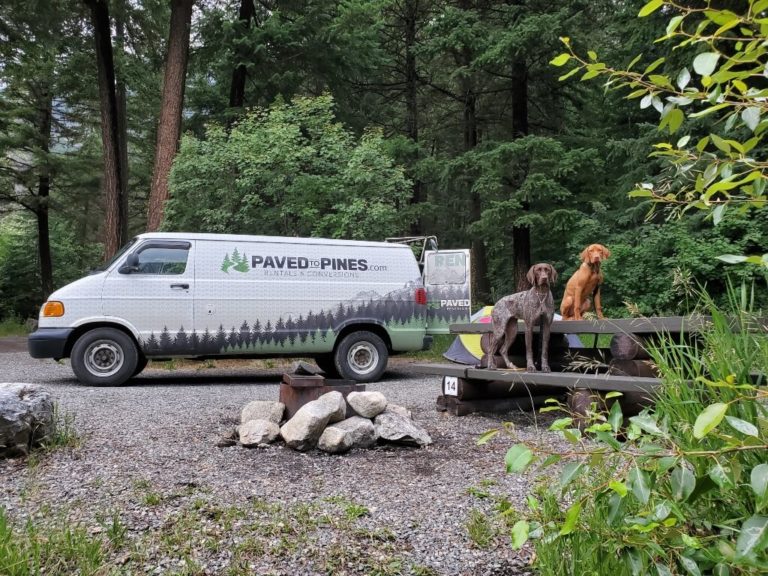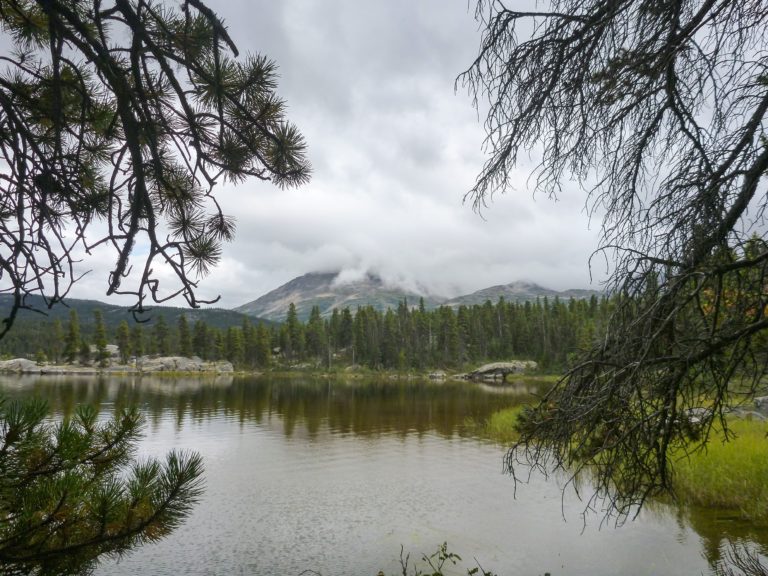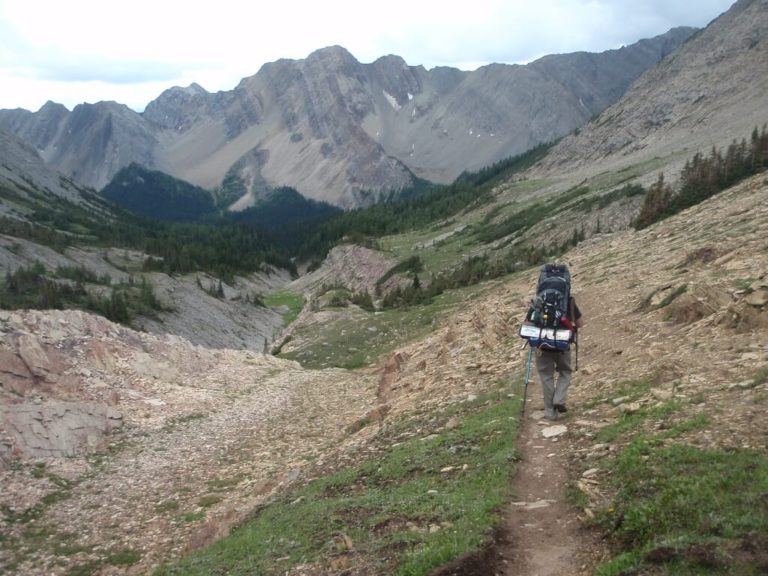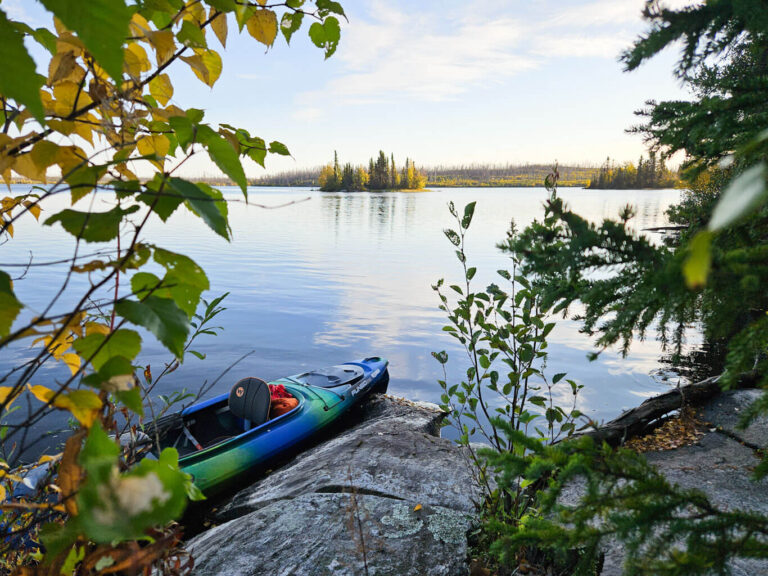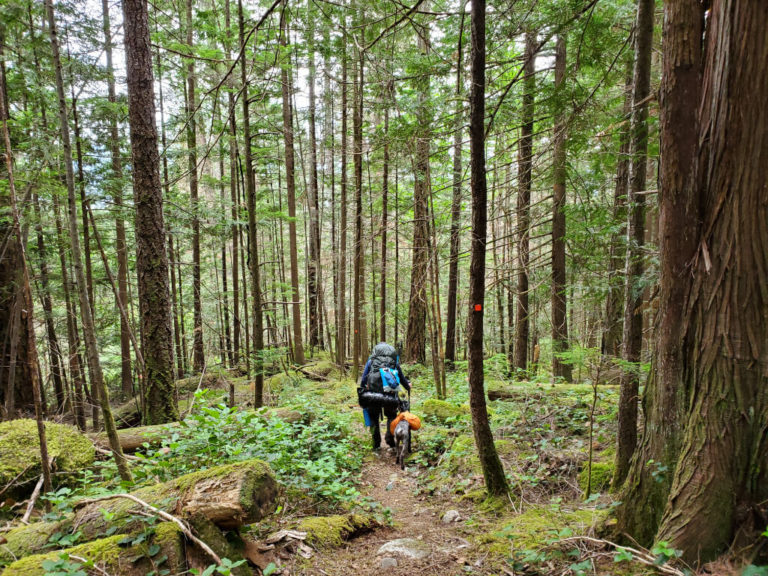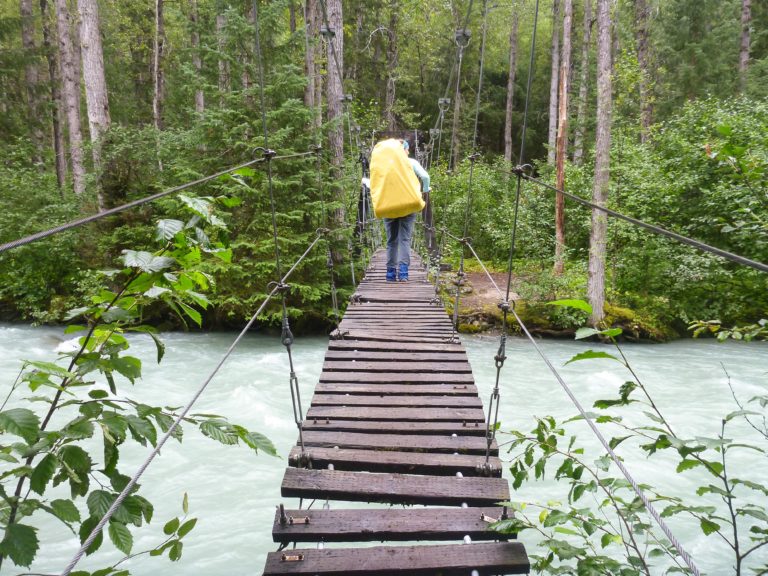25+ USEFUL SKILLS FOR OUTDOOR ADVENTURISTS
There are a huge number of skills that come in handy when spending time outdoors. These can range from survival-type skills, to hands-on practical skills, to skills related to your mindset.
Of course, you don’t need to be an expert in all (or any!) of these skills in order to get outside and enjoy the benefits that nature has to offer.
This post may include affiliate links. As an Amazon Associate I earn from qualifying purchases. Find more info in my privacy policy.
BUT learning or improving skills in these areas can increase your confidence, help keep you safer, and allow you to be more self-reliant in the backcountry. This is particularly true if you are looking to take on longer, remote, more technical, or solo adventures outside.
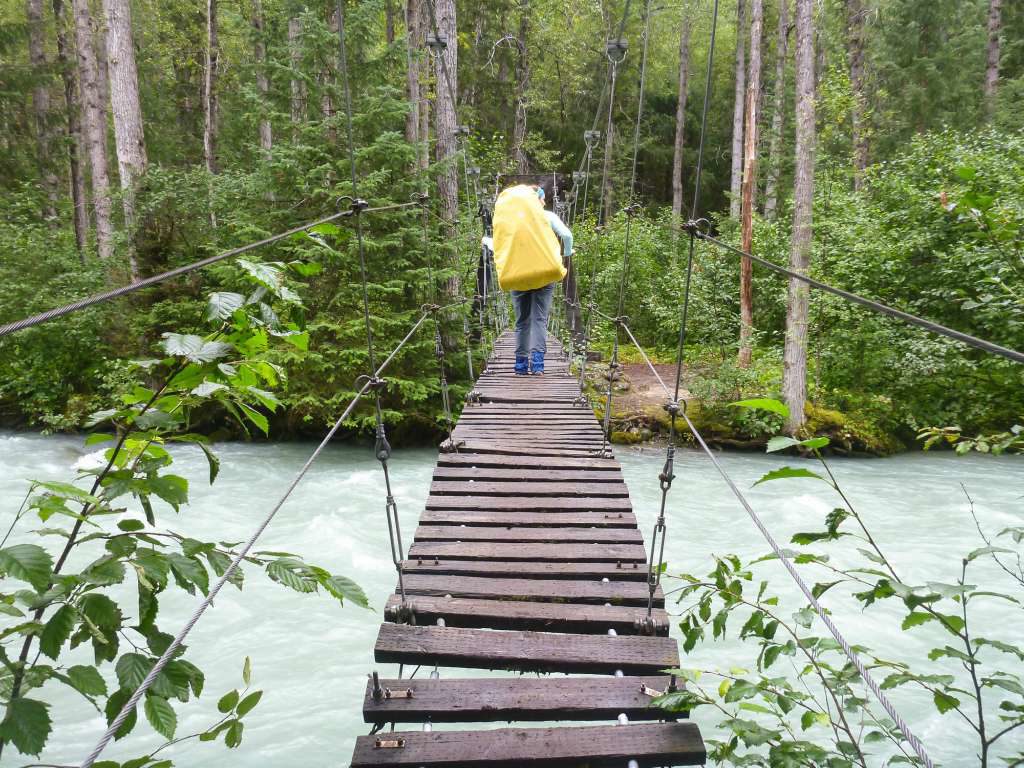
Being that I’m a big advocate for always striving to improve one’s knowledge and skillset, I highly recommend scouring this list, finding things to take a deeper dive into, and seeing how they can improve your time outside.
These are general outdoor skills and will be useful for any activities that get you outdside, such as:
- Hiking
- Kayaking
- Canoeing
- Biking
- Camping
- Backpacking
- Trail running
- Rock climbing
- Fishing
- Hunting
- Foraging
SKILLS FOR BEFORE YOU EVEN HEAD OUTSIDE
Even before you step foot outside, there are a few skills that can help your trip go off without a hitch. Planning and preparing – whether for a day trip or an extended multi-day adventure – is essential. I also happen to think that the anticipation and excitement of pre-trip prep is half the fun.
TRIP PLANNING – figuring out where, when, and how you’re adventuring is as much of a science as it is an art. Being organized and thorough in this stage can prevent so many issues down the road. You can use a notebook, a Google doc, a note app on your phone, or any other medium you prefer to store your notes. The trick is to find a system that works for you and stick to it.
Some of the things you’ll want to consider in the planning stage include:
- Trail or route you plan to take
- Terrain
- Risks – technicality, exposure, wildlife, etc.
- Special skills required
- When you plan to go and how long you plan to be gone for
- Weather/seasonality
- Ability/skill level of yourself and group members
- Permits and reservations
- Rules and regulations
- Access to water, communications, amenities, etc.
- Accessibility and logistics of getting yourself there (leaving a vehicle, pick up/drop off, etc.)
PACKING – knowing what to take and how to properly pack can be the difference between a safe, successful, comfortable trip and an absolute sufferfest. There’s a sweet spot between taking too much and not enough. You’ll also want to learn how to balance weight, whether you’re packing a backpack or a kayak. The trick here is to keep the heavier items near your center of gravity. Packing for day trips is easier. If you’re doing a longer outing, always do a trial run and adjust as needed.
READ MORE: 10 ESSENTIALS FOR ANY OUTDOOR ADVENTURE
FOOD & WATER PLANNING AND PREP – dialing in a food and water system for yourself is a skill. Learning what types of food work best for you, how many calories you need, and the best way to pack food and water will go a long way in making your trips more enjoyable. Up the skill level by preparing and dehydrating your own snacks and meals for the backcountry.
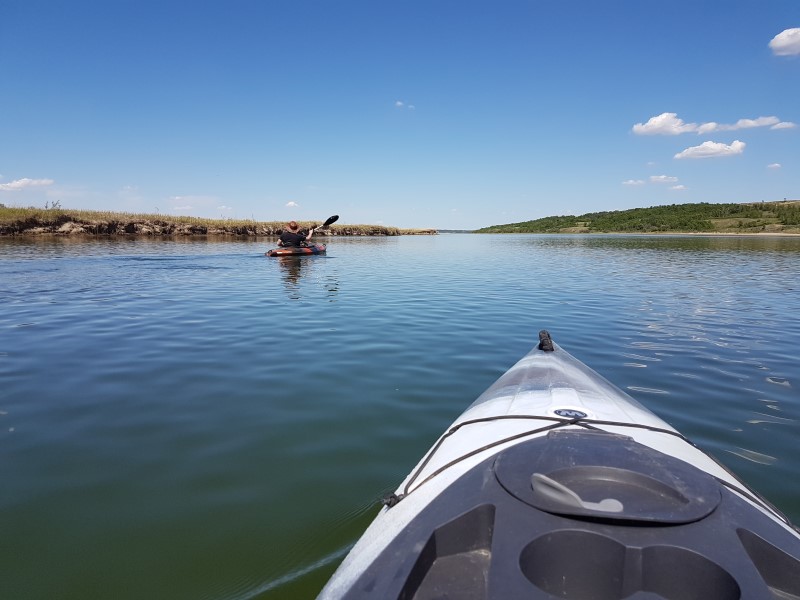
SKILLS TO USE DURING YOUR OUTDOOR ADVENTURES
Once you’re actually in the backcountry, these skills can help keep your adventures safer, more comfortable, and more efficient.
NAVIGATION – having the ability to use multiple navigation tools is ideal for situations where one option may not be available or fail on you. Learn to read a map, use a compass, utilize a GPS, and use natural elements to aid in navigating your surroundings.
MAP READING – utilizing a map is an essential part of navigation, but the ability to read and understand a topographic map is a skill that can help way beyond simply finding your way. A map can tell you so much about a landscape and help you ID everything from awesome lookout points to water sources to potential campsites.
KNOT TYING – using the right knot in the right situation can make your life in the backcountry much easier. The number and type of knots out there is endless but start with these 10 Most Useful Backpacking Knots to get going.
FIRE STARTING – comes in handy when you want to impress your hiking buddies around the campfire. Becomes essential in a survival situation. Know what materials to use, how to build a fire, and multiple ways to get it started to ensure you’re covered in any context.
PLANT IDENTIFICATION – becoming skilled at plant ID will help you keep your distance from dangerous plants but it can also be a really interesting way to connect more deeply with your surroundings. Once you start paying attention to the plants around you, you’ll find yourself noticing a lot more detail about the landscapes around you as well.
ANIMAL IDENTIFICATION – using sound, footprints, scat, and other clues to ID animals will help you better understand the places where you adventure. It can also help aid in decisions regarding safety and potential wildlife encounters so be sure to learn the risks and best practices when it comes to animals in the backcountry.
TOOL & GEAR USE – the gear and tools you carry in the backcountry are only an extension of your skills as an outdoorist. If you’re packing things that you don’t know how to effectively use, they are going to do very little to make your life easier if and when you need them. Take the time to become familiar with your gear and practice using it before you ever head outside.
BASIC GEAR REPAIR – patching holes, band-aiding a broken tent pole, or troubleshooting a malfunctioning camp stove are gear failures we’ll all face at one point or another. Being familiar with the gear you’re carrying and how to address potential issues can make or break a trip.
LEAVE NO TRACE – learning the leave no trace principles can help us make better decisions when we’re out and ensure we’re leaving places in great shape for anyone (or anything) else who follows.
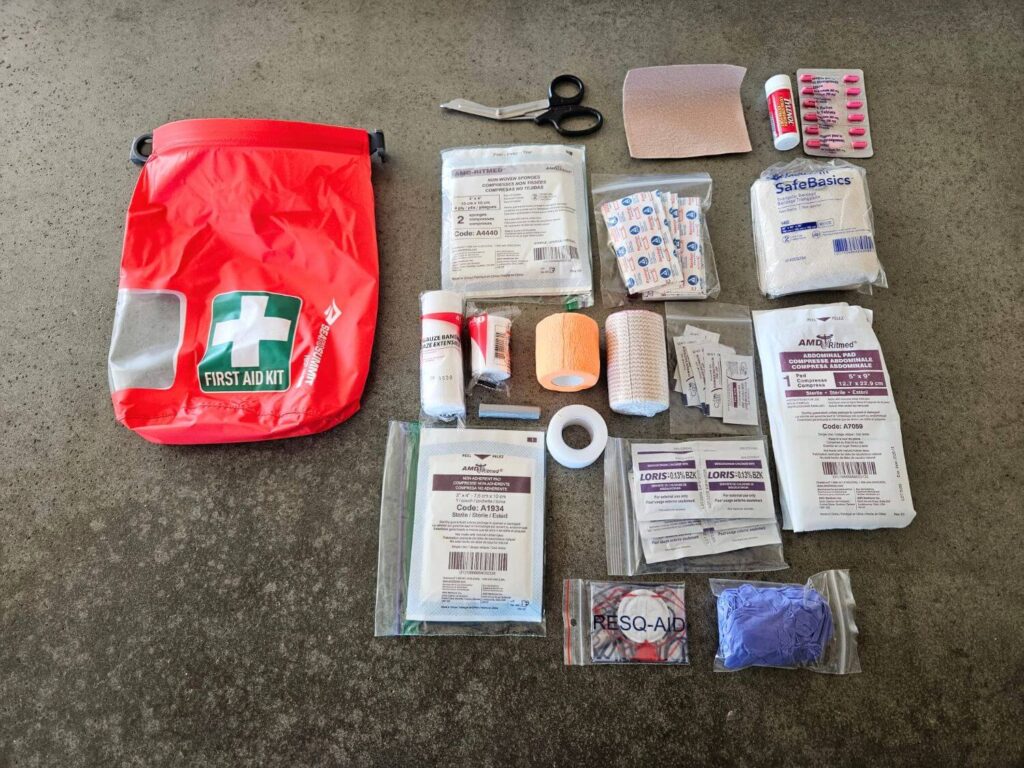
SAFETY SKILLS FOR OUTDOOR ADVENTURES
Everything we do in life carries risk, but adventuring outdoors brings with it additional and unique risks. Having skills that will keep you safer and help you deal with bad situations can boost your confidence and be the difference between a positive or negative outcome.
REMOTE FIRST AID – I highly recommend taking a wilderness or remote first aid course if you plan to spend any amount of time in the great outdoors. These courses focus more heavily on making do with what you have, dealing with elements that are not generally a factor in other situations (ie, the weather, ground conditions, etc.), and addressing decisions like when to try to get out and when to call for help.
READING THE WEATHER – checking the forecast before you head out is essential, but why not take it a step further and start to understand and pay attention to clues in real time. Being aware of cloud formations, wind, sudden changes in weather patterns, and more can help you decide when to bail, when to hunker down, and the best places to seek shelter if needed.
ESTIMATE DAYLIGHT – knowing how much time you have until the sunsets is extremely useful whether you planned to stay out past dark or not. A quick and easy way to do this is to extend your arm and hold your hand with your fingers horizontal between the horizon and the sun. Each finger that fits between the two indicates approximately 15 minutes of daylight remaining.
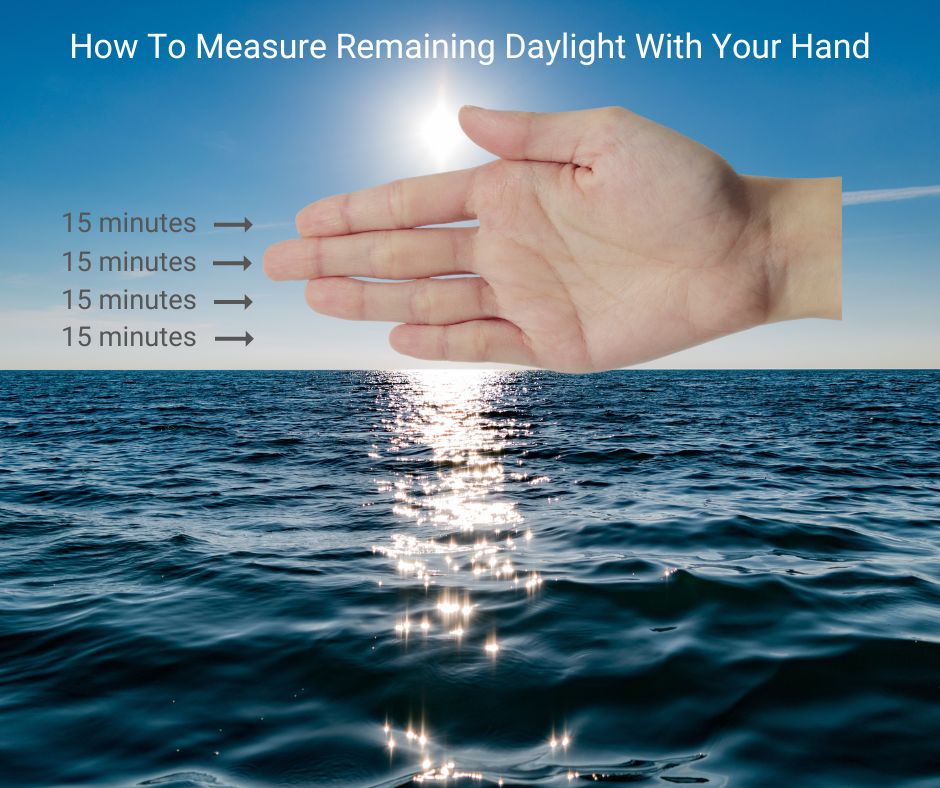
SIGNALING – if you get stuck out in a really bad situation, knowing the best ways to signal for help is crucial. Understanding how to make yourself seen and heard can be the difference between a quick rescue and a drawn-out survival situation. Distress signals can vary based on region and activity (ie whether you’re on the water vs on land) so do some research before you head out and learn what methods are most effective where you’re adventuring.
HANDLING WILDLIFE ENCOUNTERS – always be aware of the animals that frequent the areas you recreate in and the risks they pose. Learning how to avoid an encounter and how to handle it if it does occur will help keep you and the wildlife safer.
SELF-DEFENCE – in general, violent attacks from people in the backcountry are extremely rare and unlikely. However, having self-defence skills can boost your confidence and help you out on the off chance that something does occur.
SKILLS FOR A BETTER MINDSET ON YOUR OUTDOOR ADVENURES
The myriad of positive mental and emotional benefits are why many of us spend time outdoors. There are a few skills that can help you to reap those benefits and to make your outings more enjoyable and less stressful.
OBSERVATION – taking time to observe and take in your surroundings will increase the benefits you get from being outside. Practicing things like mindfulness and forest bathing techniques can help. Basically, slow down, pay attention, and acknowledge your surroundings.
SELF-RELIANT MINDSET – for me, one of the biggest draws of extended outdoor adventures is the feeling of being entirely reliant on myself. Taking responsibility for yourself and relying on your own skills and knowledge is such a huge confidence booster. If you’re going into your outdoor adventures expecting others to take care of everything for you, try shifting that to a mindset where you take accountability and see how that changes your experience.
PROBLEM SOLVING – in line with the self-reliant mindset, the ability to troubleshoot and problem solve in less-than-ideal situations is incredibly valuable. So many of our day-to-day problems are solved quickly and easily with a Google search, an app, or a call to a professional. These options are not always available to us in the backcountry and you’ll have to rely on your own mindset and decision making skills to get you through.
LEADERSHIP – if you spend your time outdoors with others, leadership skills and having the ability to manage group dynamics can help make those experiences more enjoyable for everyone.
SKILLS SPECIFIC TO MULTI-DAY TRIPS
If your adventures spread out over multiple days and potentially take you to remote locations, there are a few additional skills that will come in handy.
CHOOSING A CAMPSITE – some of the skills mentioned earlier such as understanding the leave not trace principles and map reading can help when choosing a campsite. Finding durable surfaces, staying away from dangers such as flood areas or widow makers, and ensuring you’re not infringing on other people or animals are all important to choosing a campsite.
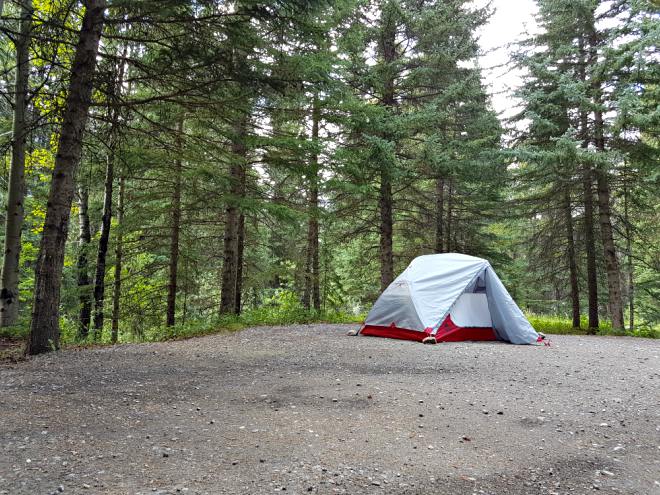
CAMP SETUP – beyond simply knowing how to set up your tent, camp setup also includes where and how you’re storing your food, setting up your cooking areas (away from your sleeping areas), and where you’re using the bathroom. Depending on where you are, there may be rules and regulations that help you make these decisions, but knowing the basics of camp setup will help keep you and your food safer and lessen your impact on the environment.
MEAL PREP – pre-trip meal prep includes planning your meals, ensuring you’ll have enough calories to keep you going, packing, and possibly even cooking and dehydrating your own meals. Much of this will be trial and error to see what works best for you and your body so it’s a skill that can be refined over time. Meal prep for multi-day trips is much more involved than packing snacks for a day trip so having a method here is very helpful.
OUTDOOR COOKING – I’m pretty lazy when it comes to meals in the backcountry and typically stick with just-add-water options that are quick and easy. But, outdoor cooking is a skill that can take your next adventure meal to gourmet status. Learning how to cook over a fire, use a Dutch oven, or cook a freshly caught fish are fun and useful skills to have.
This is not an exhaustive list of all the skills that come in handy for outdoor adventures but it does cover a lot of the basics. I hope you can find things to work on to continually improve your time spent outside. If you have other skills you think are important for outdoorists, please share in the comments!

